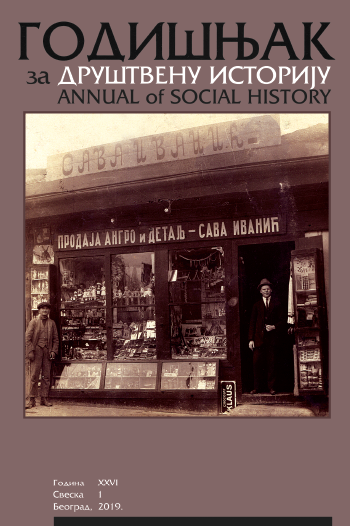Између историјске и историографске „кривицe” Вука Бранковића – методолошка ревизија једне историографске премисе
“The Guilt” of Lord Vuk Branković in history and historiography – methodological revision of one premise in historiography
Author(s): Marko ŠuicaSubject(s): Military history, Political history, 13th to 14th Centuries
Published by: Udruženje za društvenu istoriju
Keywords: Vuk Branković; Battle of Kosovo; Serbian Historiography; betrayal; legend;
Summary/Abstract: The faction of Serbian historiography known as “critical” gained full recognition by deconstructing legendary narratives related to the Battle of Kosovo (1389) at the end of the 19th century. One of the most persistent of these narratives enclosed the alleged betrayal of Lord Vuk Brankovic, which is gripped only in legend and epic folk tradition. Although historian Ljubomir Kovacevic challenged this narrative already in 1888 using medieval sources, Serbian historians have repeatedly explored the issue of Vuk’s treason during the second half of the 20th century. Their search for roots of the legend of Vuk Brankovic’s betrayal was sought in real historical events and phenomena. The issue of Vuk’s betrayal was instigated within the wider public framework in 1989 as a part of the commemoration of the six hundred years jubilee of the battle. At that time, a re-examination of Vuk Brankovic’s role occurred. Some parts of academic circles reassessed the results of the Serbian “critical” historiography on the basis of which Vuk Branković was abolished from the stigma of traitor. Driven by a general atmosphere, some historians have even questioned Vuk’s military role in the Battle of Kosovo, while his political betrayal in the aftermath had somehow become historically relevant. The betrayal of Vuk Branković was relocated from the battlefield to the sphere of politics, statehood and vassal relations. The historians who followed that trail found Vuk’s betrayal in the conduct of an independent policy that was contrary to the pro-Ottoman policy of Lazarević. Another faction of Serbian historians has pointed out that there was no evidence or connection between Vuk’s politics after the Battle of Kosovo with the betrayal of Lazar’s political legacy. The argumentation of revisionist historians of Vuk’s historical role was based on a simplified or selective perception of social and geopolitical circumstances in the Balkans. Additionally, it derived from the misapplication of historiographical principles in interpretation of phenomena belonging to epic tradition that should be studied by different methodology. With this in mind, the conclusion is that Vuk’s alleged guilt should be viewed as a phenomenon within the framework of legend and folk epic tradition, while his historical role should be studied separately, based on postulates of historical methodology as a part of social sciences and humanities.
Journal: Godišnjak za društvenu istoriju
- Issue Year: 2019
- Issue No: 1
- Page Range: 7-27
- Page Count: 21
- Language: Serbian

